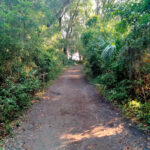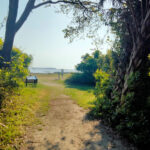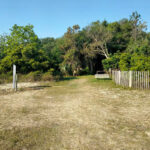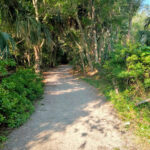Site 4
After Freedom Was Declared
Attuh Freedum Declare
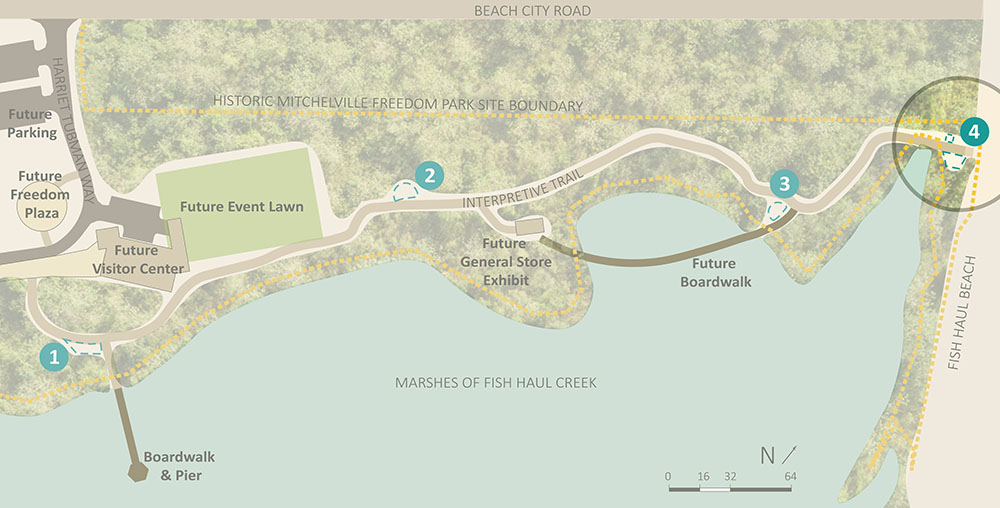
Site #4 is the terminus of the trail. From Site #3, the trail continues northeast past a stately live oak to emerge at the threshold between the forest and the beach. The site will emerge into view at this threshold, where the tree canopy ends, and sand beach begins. The site is currently surrounded by dwarf palmetto and wax myrtles, which could be selectively pruned to reveal desired views. The site has the possibility to span both sides of the trail to heighten the experience of crossing a threshold, or to frame the view.
Site #4 is trapezoidal in shape, with 40’ of frontage on the southeast side of the trail. The site area extends approximately 22’ to 25’ off from the trail, tapering to 21’ in width at the edge of the site for a total area of approximately 637 SF. The northwest portion of Site #4 has about 10’x10’ or 100 sf. of usable area from the trail that could accommodate a narrow, vertical installation. Site #4 also has the potential to draw in visitors from nearby Fish Haul Beach Park; the site will be visible to passing beachgoers.
Site #4 looks east to the coast of West Africa, homeland of the enslaved and their descendants; also, northwest to Camp Saxton, near Beaufort, South Carolina, where the Emancipation Proclamation was first read. The height of any Site #4 element must clear 10’ over the Interpretive Trail to accommodate emergency vehicles and the maximum height of any proposed overhead element must not exceed 12’.
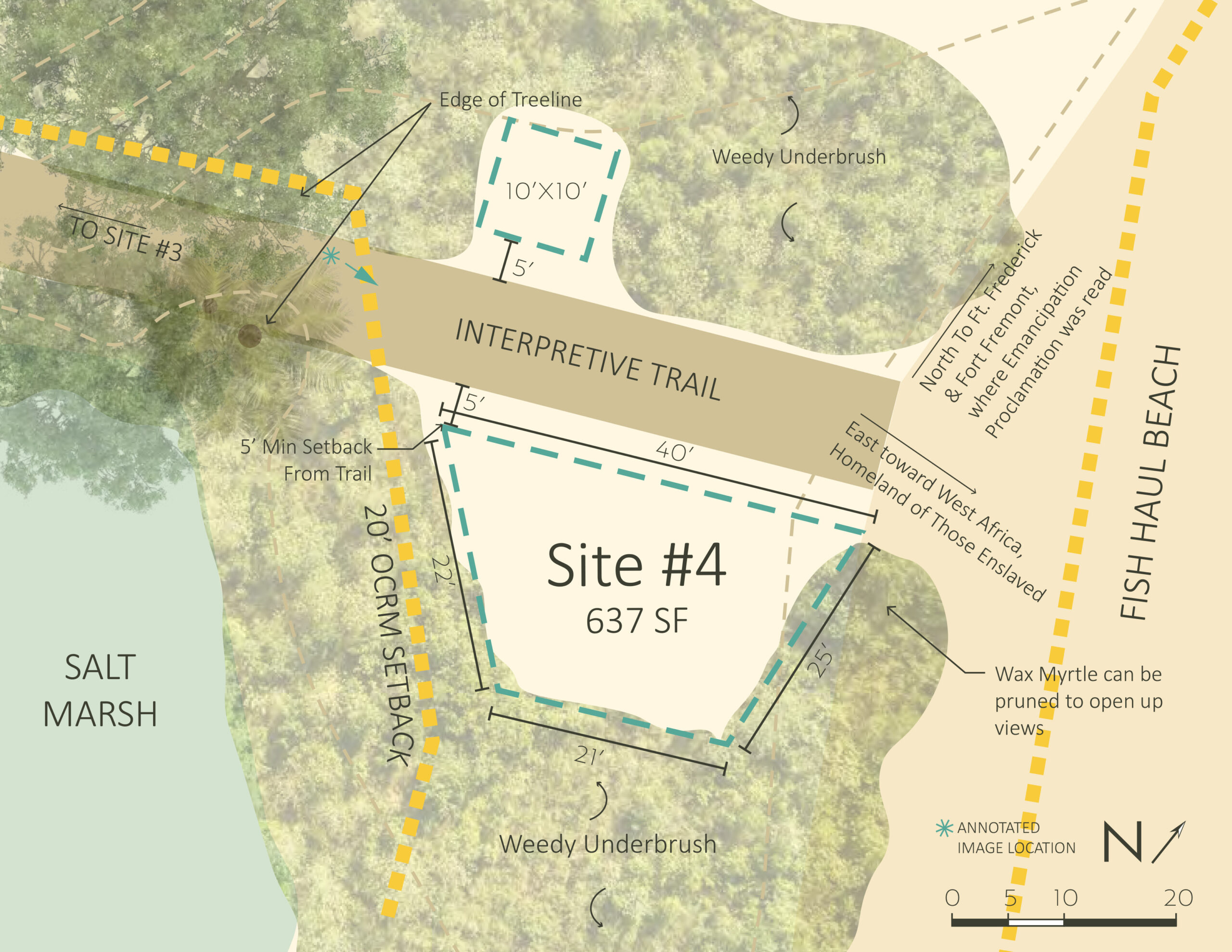
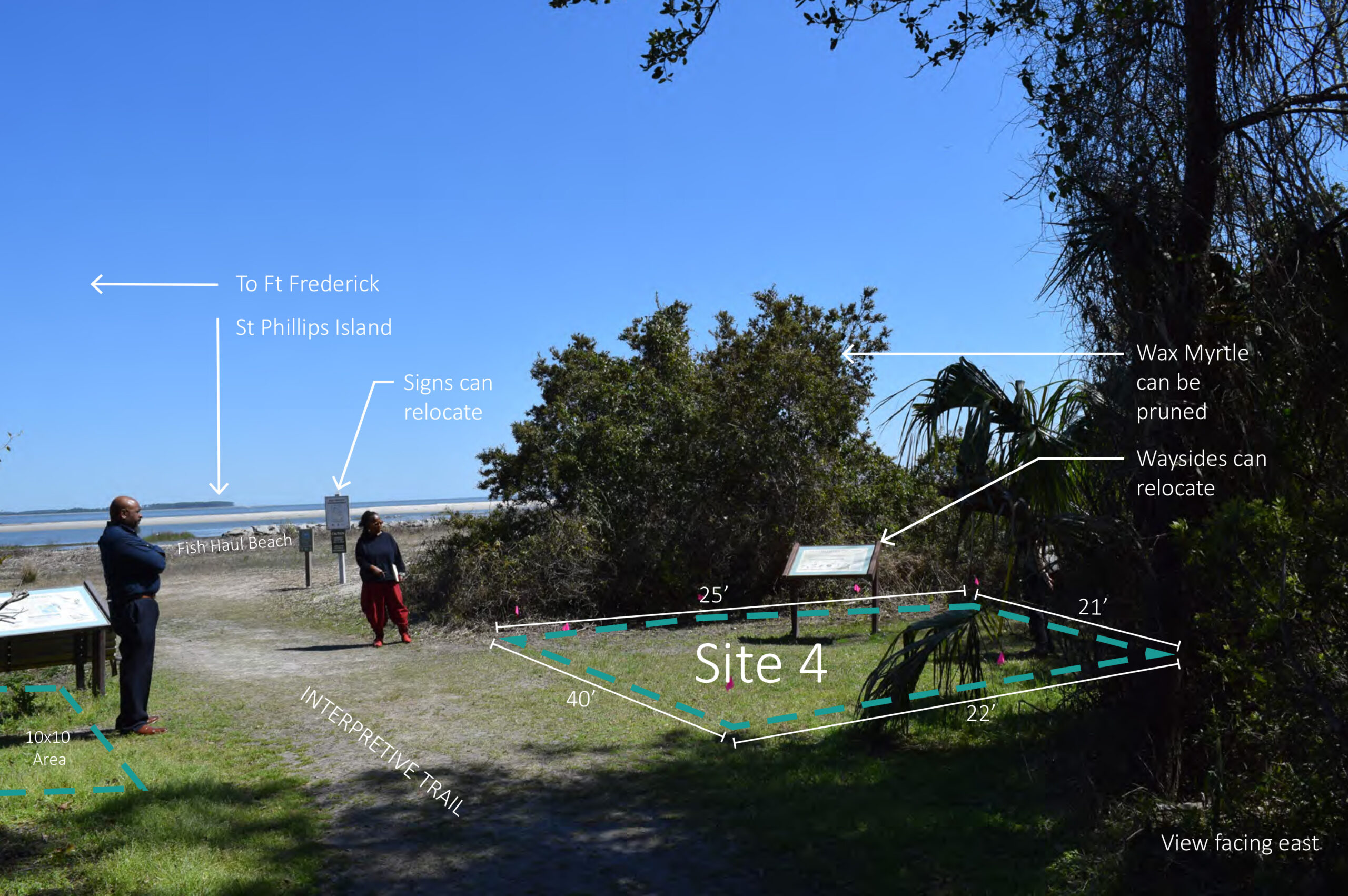
When the architects of our republic wrote the magnificent words of the Constitution and the Declaration of Independence, they were signing a promissory note to which every American was to fall heir.
This note was a promise that all men, yes, black men as well as white men, would be guaranteed the unalienable rights of life, liberty, and the pursuit of happiness.
It is obvious today that America has defaulted on this promissory note insofar as her citizens of color are concerned. Instead of honoring this sacred obligation, America has given the Negro people a bad check, a check which has come back marked “insufficient funds.” But we refuse to believe that the bank of justice is bankrupt. We refuse to believe that there are insufficient funds in the great vaults of opportunity of this nation. So we have come to cash this check — a check that will give us upon demand the riches of freedom and the security of justice.
Martin Luther King, Jr
Site 4 Images
